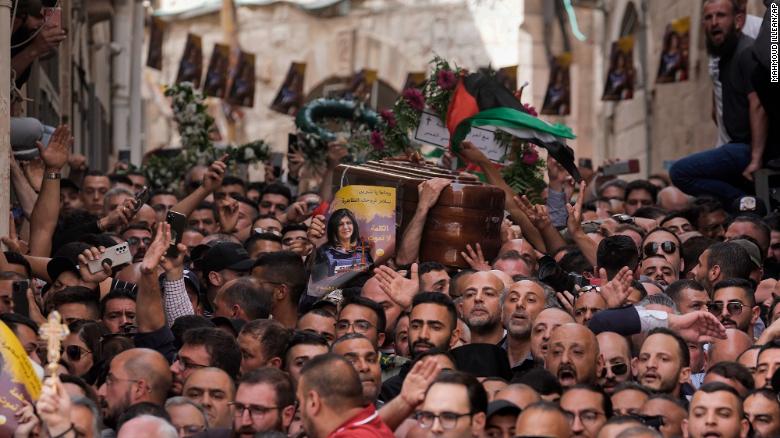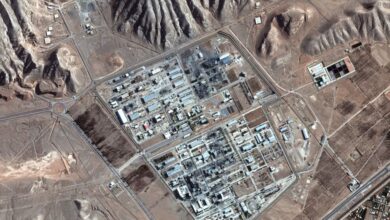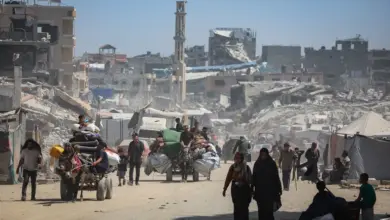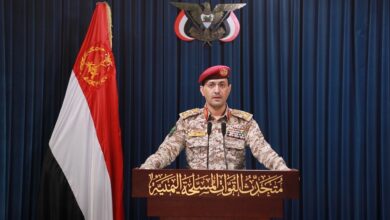
To sit outside Cafe Fouquet’s in the Champs-Elysees, I wrapped myself in a warm coat, a cap with my company’s logo – ARTOC – and a thick black scarf. The bundling and a steaming hot chocolate made it possible to enjoy Paris’s fresh air. It got me through as I read The Financial Times, sadly consuming news of the tanking global economy.
A firm tap on my shoulder startled me.
Lo and behold, it was Christophe with some friends.
“Caught you, Shafik,” he blurted. “Even wrapped like a mummy, your cap gives you away.”
Christophe, a close friend from early days, was a famous French political commentator. Sabine, his wife, who owns a gallery in Avenue George V, and four other people I did not recognize circled my small table.
It started to drizzle; we shook hands, I hugged Sabine, and we sought warmth inside.
We settled at a nice table with a view of the Arc de Triomphe. A server approached and took the orders in a
mixture of French and English. I ordered a still water and a croissant.
Christophe introduced his friends: Eva Rosenstein, a film producer and obviously French; Jim Longworth, an American lobbyist; Sam Perez, an Israeli journalist; and Emile Haddad, a Lebanese venture capitalist.
I politely inquired about the Cannes Film Festival and was mentioning the Cairo Film Festival when Emile asked the group if they had seen the documentary, Eleven Days in May.
I admitted I had not, as did Christophe and Sabine. Jim did not react, and Sam said, “Yes, I did — a powerful documentary for which Kate Winslet, the narrator, Michael Winterbottom, the director, and Mohammed
Sawaf, a co-director have been harshly criticized and admonished.”
“What is it about?” I asked. Sam said it was about eleven days in May 2021 when Israel bombed Gaza, causing numerous fatalities. The documentary focuses on the children who lost their lives.
“During the bombardment,” Christophe recalled, “over 250 Palestinians were killed, of whom 70 were children.”
“It was a tragic catastrophe,” Sabine added. Sam nodded. Jim interjected: “We should not forget that this was in retaliation for Hamas rockets sent into Israel causing havoc and disruption.”
Emile was finishing his espresso and wringing his hands: “But why is the Israeli lobby attacking Kate Winslet, Michael Winterbottom, and Mohamed Sawaf?
Why put pressure on Winslet, as if her narrating the documentary was a sin?! What happened and is described are facts. Why does Israel have to scare everyone who dares to speak out, criticizing Israel?”
Jim chimed in: “I agree with Richard Trank, the Oscar winning writer at Moriah Films, the movie division of the Simon Wiesenthal Center in LA. The film is one-sided and should have shown Israel being subjected to thousands of Hamas missile strikes coming from Gaza.”
Surprisingly, Eve, who was listening intently and was obviously Jewish, asked firmly: “And how many Israeli children died with all these missiles sent over to Israel? Almost none. The Palestinian missiles are rubbish, only a headache, and should be destroyed. That is why Israel has the Iron Dome, but those Palestinians have nothing, and killing more than 60 children in a revenge initiative of eleven days bombardment is inexcusable!”
I broke the momentary silence that followed: “The loss of lives on the Palestinian or Israeli side is tragic, especially when children lose their lives, because the adults for fifty years have not been able to reach an agreement.”
“What bothers me,” Emile followed, “is the immense, aggressive, and global capability of the Israeli machine to clamp down on anything that is not only critical of Israel, but that may just possibly appear to be critical of Israel. That is when the Israeli machine gears up to use its tools: ‘anti- Semitic,’ ‘one-sided,’ ‘criminal,’ as in any negative view on the Holocaust, ‘Hamas instigated,’ ‘terrorist,’ and much more.”
In an even voice, Sam said: “I sympathize but my country has been historically under pressure and we have had to fight back; in some cases the pendulum swung too harshly to an extent that we must re-balance free speech with authoritarian psychological scare tactics.”
Emile questioned: “Do you remember Paul Findlay, the moderate congressman from Illinois? When he spoke critiquing Israel he was squashed in the next election by the Israeli lobby. He later wrote a book titled They Dare to Speak Out (1985).”
Christophe answered: “I remember the book and more recently the book The Israeli Lobby and US Foreign Policy (2007) by Stephen Walt and John Mearsheimer, both Jewish authors and extremely well-respected academics. The Mearsheimer and Walt book was criticizing US policy towards Israel, but the Israeli machine geared up and put both writers under immense pressure, damaging their academic standing.”
Jim was twirling his spoon in his tea cup.
“Nothing wrong with any of this,” he said. “I say bravo, Israel. The Israeli lobby is a strong one and will bring
down any unfair criticism.”
Sabine looked at him, her eyes widened: “How do you define ‘unfair’ if it is fact? In the instance of Eleven Days in May over 65 children were killed. Israel must have empathy. Did you not see the Israeli police kicking and gagging a 13-year-old unarmed, deaf girl simply because she was protesting?”
Emile jumped in with a heated voice: “What about bullets being fired in the Al-Aqsa Mosque? Is this humane? What if a Palestinian fired in a synagogue, what would you say?”
Sam, more restrained, said: “The Eleven Days in May documentary should not have been a reason to attack Winslet and the directors. However, we in Israel have a very well-honed machine that kicks into gear at any reasonable or even unreasonable critique of Israel.”
“Watch this,” he said, showing us on his phone a video of the former Israeli minister of education explaining the realities of the situation.
As the clip ended, Jim said: “These are the facts, like them or not. If it is even alleged criticism of Israel, the machine will bring it down. As for 67 Palestinian children dead because of bombardment, the Hamas should not have fired missiles in the first place.”
Sabine, clearly disturbed by the tension, said to Jim and Sam: “How do you explain the Israeli police attacking
the funeral and pallbearers carrying the coffin of Shireen Abu Akleh (who was shot by the police while wearing a ‘Press’ vest and unarmed)?”
Sam answered: “A big mistake, which should not have happened.”
Jim added: “We don’t know the facts. Maybe she did something that caused her to be shot!”
Christophe could not restrain himself: “Jim, your country attacks every Arab country that jails a journalist and now, when Israel kills one, not a peep!”
A second, harsher silence ensued. Even Sam was not too happy with Jim’s behaviour. Christophe was paying the bill as we got up, and I concluded: “I wish you all well and equally hope that this horrible state of affairs between Israelis and Palestinians comes to an end by a two-state solution or a one-state with equal rights to all citizens.”
“I hope no more children will die on either side.” Eve said.
We walked in different directions as dusk engulfed Paris, and I remember Anwar Sadat’s famous quote:
“Let there be no more wars and bloodshed between Arabs and Israelis. Let there be no more suffering or denial of rights.”
Is there still hope for that, I pondered as I walked back to my hotel.
Are Palestinians and Israelis condemned to a never-ending cycle of violence?
Bio of M. Shafik Gabr:
M. Shafik Gabr is a renowned leader in international business, innovation, investment and one of the world’s premier collectors of Orientalist art, and an accomplished philanthropist.
During his career, Gabr established over 25 companies plus three investment holding companies including ARTOC Group for Investment and Development which, established in 1971, is a multi-disciplined investment holding company with businesses in infrastructure, automotive, engineering, construction and real estate, over the past three years focusing on investment in technology and artificial intelligence.
Gabr is the Chairman and a founding member of Egypt’s International Economic Forum, a member of the International Business Council of the World Economic Forum, a Board Member of Stanhope Capital, an International Chairman of the Sadat Congressional Gold Medal Committee, and a Member of the Parliamentary Intelligence Security Forum. Gabr is a Member of the Metropolitan Museum’s International Council and serves on the Advisory Board of the Center for Financial Stability, the Advisory Board of The Middle East Institute, and the Global Advisory Council of the Mayo Clinic.
Through the Shafik Gabr Social Development Foundation, Gabr is helping to improve elementary-school education in Egypt, introducing students to arts and culture and promoting sports and physical fitness for youth. The Foundation has its first Medical and Social Development Center in Mokattam, Cairo, offering free medical and health services. In 2012 Gabr established in the US the Shafik Gabr Foundation which supports educational and medical initiatives plus launched in November 2012 the ‘East-West: The Art of Dialogue initiative promoting exchanges between the US and Egypt with the purpose of cultural dialogue and bridge-building.
Gabr holds a BA in Economics and Management from the American University in Cairo and an MA in Economics from the University of London.




